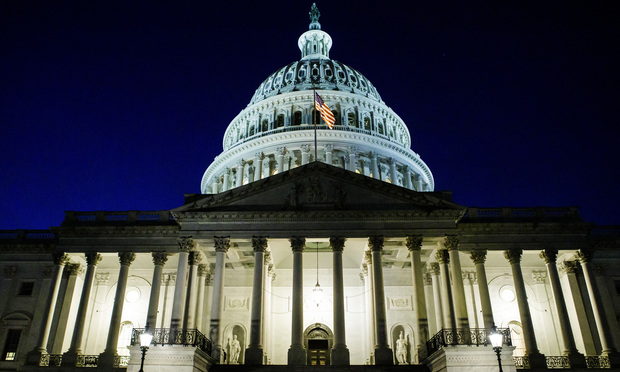The federal judiciary is seeking an additional $7 million in emergency supplemental funding from Congress as it anticipates the coronavirus will impact courts for the next three months, the chair of the Judicial Conference’s executive committee said Tuesday.
U.S. District Judge Claire Eagan of the Northern District of Oklahoma, who chairs the conference’s executive committee, told reporters after the Judicial Conference met remotely Tuesday that the judiciary made the request for the supplemental funding Monday.
She said that request was “based on requirements identified as of yesterday, and assuming an interruption of three months in operations.”
Eagan said the majority of the requested funds, about $4.5 million, would cover individual costs for mental health and drug treatment for those under supervision by probation and pretrial services.
She said those treatments are typically administered in a group setting, and that “it’s going to be more costly to provide it individually.”
Eagan said other funds are to address IT requirements for judiciary staff working remotely.
“At this point the main concern and issue is, do we have enough bandwidth to accommodate the increase in teleworking?” the judge said.
She added that there is also a “small component” in the funding request for defense services staff “to work remotely and to represent their clients without disruption.”
Judiciary spokesman David Sellers said a more “formal transmission” of the request will be made to Congress.
“AO staff have been in constant communications with appropriations staff on the impact of COVID-19 on courts and also have been coordinating needs internally with court programs,” Sellers said in an email.
“Obviously, this is a rapidly changing situation. As of late last week, we were able to pull together an early list of supplemental funding needs and share it with the appropriations committees for their consideration,” he said.
The Judicial Conference met remotely Tuesday, as federal courts around the country implement restrictions to counter the spread of coronavirus in accordance with public health guidelines. The group typically meets at the U.S. Supreme Court, which is currently closed to the public.
Eagan said no judiciary staffer has tested positive for COVID-19 as of Tuesday morning.
The judiciary said in a release issued after the conference meeting that it assembled a taskforce to address coronavirus a month ago. The group includes judges, court officials and representatives from the U.S. Marshals Service and the Federal Protective Service, and is meant “to share information and guidance related to the coronavirus outbreak as it relates to the Judiciary.”
“The [Administrative Office of the U.S. Courts] also is providing courts, probation and pretrial offices, and defender services organizations with operational, human resources, funding, and other support and guidance,” the release said.
Eagan said individual courts—both circuit and district—are issuing their own orders addressing courthouse operations rather than a federal mandate be put in place. She said Article III judges across the courts still have “flexibility to do what they have to, to address cases that have immediate concerns.”
Read more:
As Coronavirus Threat Grows, More Courts Curb Access and Limit Oral Arguments
DC Chief Judge Postpones Proceedings Until Mid-April, Trials Until May Over Coronavirus
Big Law Goes Remote: Updates on Law Firm Closures During the Coronavirus Crisis
Paul Weiss’ Brad Karp: We Need Obama, Bush and Clinton to Beat the Coronavirus
‘All Hands on Deck’ for Labor and Employment Firms Facing Flood of Employer Questions
NOT FOR REPRINT
© 2024 ALM Global, LLC, All Rights Reserved. Request academic re-use from www.copyright.com. All other uses, submit a request to [email protected]. For more information visit Asset & Logo Licensing.


 The U.S. Capitol building in Washington, D.C., on Dec. 12, 2019. Photo: Diego M. Radzinschi/ALM
The U.S. Capitol building in Washington, D.C., on Dec. 12, 2019. Photo: Diego M. Radzinschi/ALM






